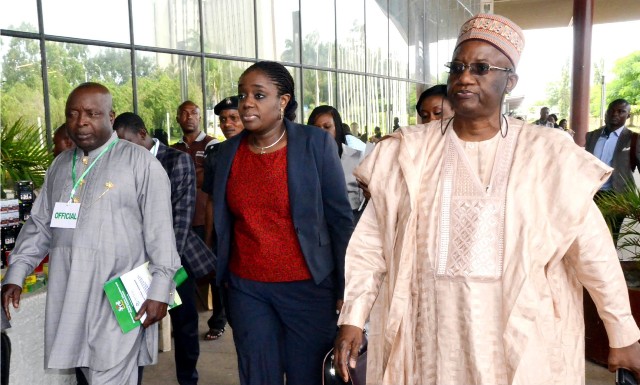Business
Lack Of Capacity, Bane Of Infrastructural Dev – ICRC

The Acting Director-General, Infrastructure Regulatory Concession Commission (ICRC), Mr. Chidi Izuwah has on Monday said lack of capacity was a major challenge of infrastructure development in the country.
Izuwah said this during the Certified Public Private Partnership Professional training(C-P3 Professional) for civil servants organised by ICRC in collaboration with the World Bank in Abuja.
He expressed optimism that the certification and training would equip the participants to be able to address the infrastructure deficit in the country.
“Lack of capacity is now a major thing that we need to address; we need to have public servants who have the technical capacity and sophistication to handle PPP projects.
“This is because PPPs are complex, legal, financial and technical.
“So to be able to develop these projects, take them to the market in the way and manner that it is bankable and attractive to the private sector, you have to have the skills.
“And that is what you are doing today and we are very pleased to be partnering with the World Bank.
“This shows you that Nigeria is back in the play on the PPP bracket around the world.
“This is a very strong demonstration that the World Bank is sponsoring this training to make sure that we have C-P3 certified professionals in Nigeria.
“We are working with the office of the Head of Service to see how we can take this further in terms of training masses of civil servants in Nigeria at the federal level and other levels.
“So that they can have the capacity to be able to develop bankable projects,’’ Izuwah said.
The ICRC boss explained that the essence of the training was to ensure that Nigeria was the best PPP destination in the world.
He noted the huge deficit in the country’s budget, saying that the only way to bridge the infrastructure gap in the country was by using PPPs.
“The budget cannot provide all these, so we need to draw in millions of capital and expertise from the private sector across all sectors of health, housing, power, port etc.
“So many countries have been able to do a lot of projects using PPPs and we want Nigeria to be able to do same.’’
According to Izuwah, C-P3 professional is the only qualification in the world globally recognised for PPP practitioners as it involved the World Bank, African Development Bank, Islamic Development Bank and the like.
Business
Fidelity Bank To Empower Women With Sustainable Entrepreneurship Skills, HAP2.0
Business
President Tinubu Approves Extension Ban On Raw Shea Nut Export
Business
Crisis Response: EU-project Delivers New Vet. Clinic To Katsina Govt.
-
City Crime5 days ago
NCSU Hails Fubara Over 2025 New Telegraph Man Of The Year Award
-
Nation5 days ago
Nigeria Risks Drifting Without Strong Education Policies-Don
-
Nation5 days ago
Ex-UNIPORT SUG Leaders Organise Symposium In Honour Of VC
-
Nation5 days ago
Council Chairman Reconstitutes Revenue, Anti-Illegal Trading Committees To Boost IGR
-

 Education4 days ago
Education4 days agoElga boss tasks law students on academics strides
-

 News1 day ago
News1 day agoAmend Constitution To Accommodate State Police, Tinubu Tells Senators
-

 Politics1 day ago
Politics1 day agoSenate Urges Tinubu To Sack CAC Boss
-
Business1 day ago
President Tinubu Extends Raw Shea Nuts Export Ban To 2027

